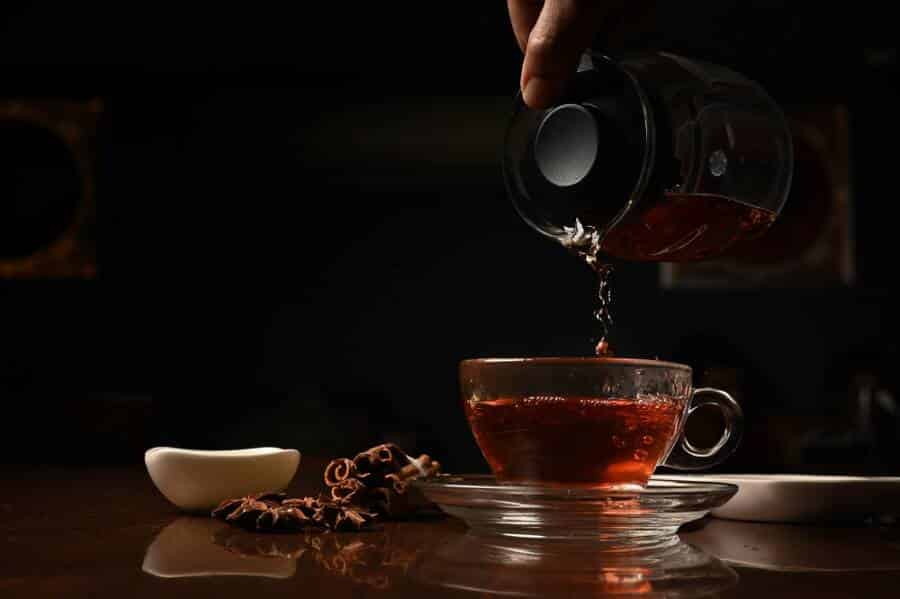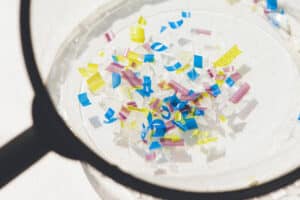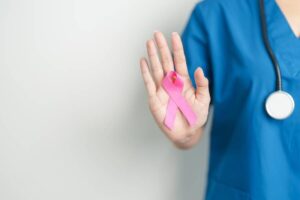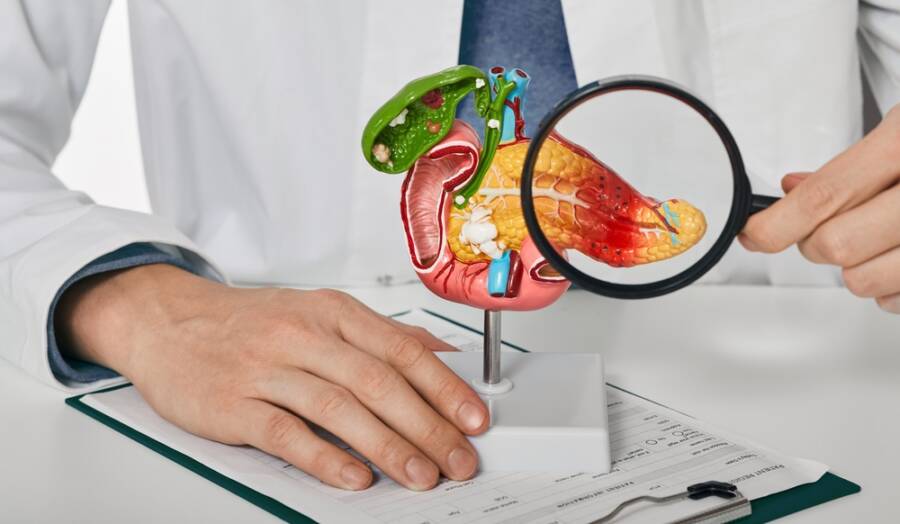Today, we probably take more medication than ever. Whether we talk about antibiotic treatments or occasional hangover cures like Tylenol, I think each one of us is taking at least one pill every year.
But how much do we really know about these drugs, or how they can interact with the foods and beverages we’re consuming? How often do we read the product description carefully before taking that pill?
Sadly, too many people experience strange side effects or failed treatments simply because they don’t know what (and when) to avoid while taking their medication.
If you’re one of those people, it’s about time you found out the key rules on mixing foods and common drugs.
As a special bonus, today’s experts will start by revealing the truth about taking antibiotics with dairy.
Let’s start!
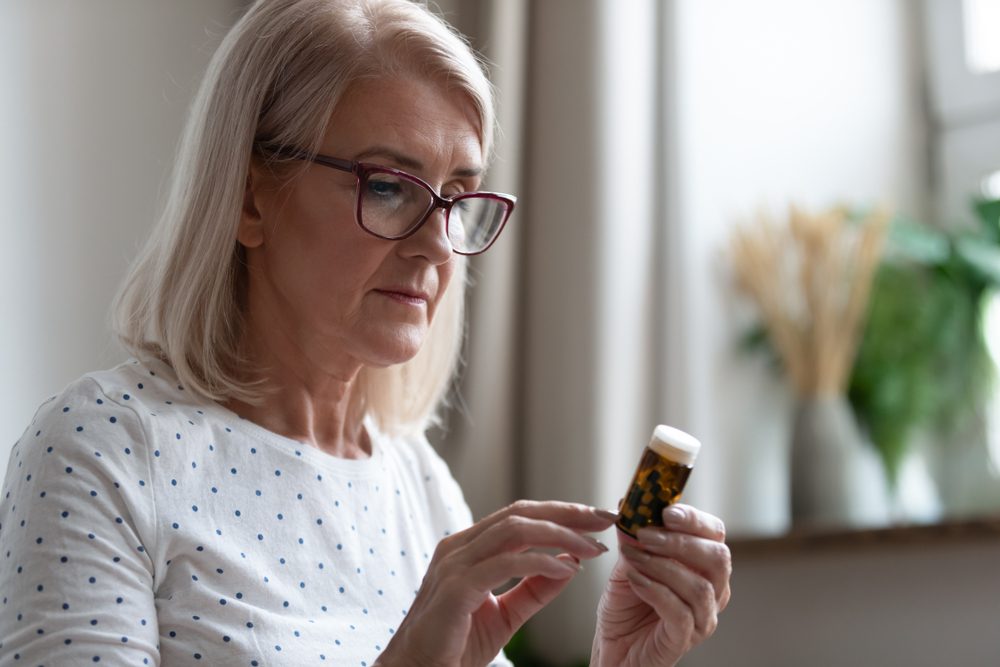
Dairy & antibiotics
A couple of years ago, I heard a friend randomly saying that we should never take any meds with milk.
I didn’t pay attention until I found scientific evidence for it, so here’s the deal:
‘Dairy products bind to the medicine and interfere with its absorption into the bloodstream,’ says Dr. Nouhavandi.
So it’s not just milk that would harm the effects of antibiotics; yogurt, cream cheese or any other option you’d consider can be equally damaging. But in what way?
Specialists have found that taking dairy two hours before (and six hours after) taking antibiotics decreases their efficiency. This mainly happens because certain compounds found in dairy don’t allow antibiotics to enter the bloodstream.
If you’re secretly lactose intolerant, you’ll also experience digestive symptoms like nausea, cramps or diarrhea.
Alcohol & Acetaminophen
Acetaminophen is just a fancy name for Tylenol – one of the most popular go-to remedies against those annoying hangovers.
However, if you’re planning to drink alcohol again, you should definitely stay away from this quick remedy. Why?
Jessica Nouhavandi, co-CEO and co-founder of Honeybee Health in California, explains that when you combine acetaminophen with alcohol ‘you may be at an increased risk of liver toxicity.’
And while you may get away with a very small quantity of alcohol after taking Tylenol, you’ll certainly increase your risk of liver toxicity if you’re a regular drinker.
What does ‘regular drinker’ mean? According to Dr. Nouhavandi, it means consuming at least three alcoholic beverages daily (beer included).
Thankfully, you can avoid the risks by limiting your alcohol intake whenever you’re taking acetaminophen; the Centers for Disease Control and Prevention recommends sticking to one drink for women and two for men a day.

Grapefruit & Calcium channel blockers
According to Harvard Health Publishing, calcium channel blockers are most commonly used to treat high blood pressure and angina.
Most medication in this category can be taken safely. However, some pills can be negatively influenced by the common grapefruit juice, like nifedipine or felodipine.
You might get the same effect when combining the delicious juice with statins – medication used to treat high cholesterol. That’s because grapefruit can inhibit the enzyme CYP3A4, which is responsible for metabolizing drugs.
So what can you do? Well, the simplest solution is to turn to fresh orange juice instead, since grapefruit is the only citrus that can negatively affect your meds treatment.
Hypothyroid Drugs and… any food
Over the past few years, thyroid problems have increased in frequency mostly due to people’s unhealthy lifestyle choices.
Thankfully, hypothyroidism can be managed with proper treatment. The most popular option? Synthroid.
If you’ll read the label of this drug, it specifies to take each pill on an empty stomach and wait between 30-60 minutes before eating anything afterwards.
Many people don’t even take this recommendation into account, thinking it’s not that serious – and this can actually ruin their treatment.
Virtually every food you consume can block drug absorption, including popular breakfast beverages like coffee or tea. According to Ashley Ellis, director of clinical operations at Compwell, Tennessee, thyroid medication dosages can vary a lot depending on each patient’s situation; if your dosage is small or moderate, taking Synthroid with food/beverages can cancel its effect for good!
Kale & Warfarin
If you’re taking blood thinners like Jantoven or Warfarin to treat blood clots, you might want to skip that green salad.
More specifically, the problem comes down to green veggies with a high concentration of vitamin K, such as kale and broccoli. Why?
‘Vitamin K negates what warfarin is trying to do,’ explains Mitchell Howard, clinical assistant professor at the University of Toledo College of Pharmaceutical Studies.
Consuming too many whole foods rich in vitamin K (especially if you don’t usually eat them) can seriously increase your risk of developing blood clots again, since your treatment stops working.
However, this doesn’t mean you should give up on a healthy diet. Your doctor can adjust your treatment dosage to make sure it’s working properly; just let them know you’re planning to add broccoli and kale to your diet on your next visit!
Aged cheese & MAOIs
The abbreviation MAOI stands for ‘monoamine oxidase inhibitor,’ a medication category that includes many antidepressants such as Marplan or Parnate.
These drugs can negatively interact with foods high in tyramine – an amino acid responsible for blood pressure regulation. Depending on the quantity of your meds and food consumed, you might be at risk for a hypertensive crisis!
The most popular foods high in tyramine are aged cheeses, fava beans and pickled herring. Some wine varieties might also contain dangerous quantities of tyramine, so make sure to check those out as well.
Simply asking your doctor or pharmacist if your treatment belongs to this category of meds so you can adapt your diet can keep you safe.
Alcohol & SSRIs
We all know that mixing alcohol with meds is generally a bad idea. However, few of us know just how much it harms us especially when taken with certain drugs.
Selective Serotonin Reuptake Inhibitors, or SSRI, is a category of antidepressants commonly used to treat depression and anxiety disorders. Unfortunately, though, many cases of depression are linked to alcohol consumption, so there’s a great likelihood for the two to be mixed (accidentally or not).
This can have a devastating impact. Dr. Ellis points out that ‘the risk of combining these with alcohol is stomach or gastrointestinal bleeding.’
ATTENTION! This information is crucial for your health, so if you’re planning to take antidepressants, make sure to ask your doctor or pharmacist for directions.
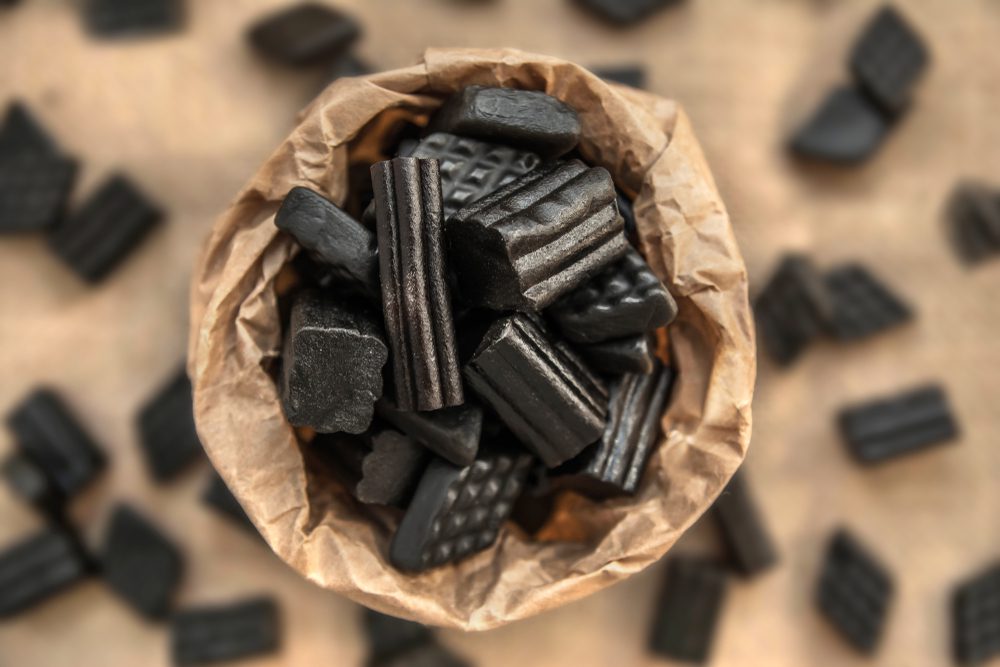
Licorice & Spironolactone
Aldactone (medically called spironolactone) is a diuretic type of medication mostly recommended to treat potassium deficiencies or heart failure, as per MedlinePlus.
Although licorice foods and beverages aren’t nearly as popular as other options on our list, they’re definitely worth mentioning. Why?
According to Dr. Ellis, licorice consumption triggers the same receptors as spironolactone, which cancels the effects of the drug. Regardless if you’re consuming licorice in the form of candy, tea or supplements, it’s best to stay away from it during treatment.
Tiny meals & Ziprasidone
Another rarely used drug on our list is Geodon (medically called ziprasidone). This antipsychotic is most commonly used to keep mental illnesses including schizophrenia and bipolar disorder under control.
The National Alliance on Mental Illness highly recommends taking each pill with a meal of at least 500 calories (see here).
Multiple studies including this one from the Journal of Clinical Psychiatry proved that your body absorbs ziprasidone much better when consumed with hearty meals. If you take it on an empty stomach or avoid eating afterwards, its effects might decrease, which can impact your treatment negatively.
COVID-19 vaccine & other medication
Although it’s been more than three years since the outbreak of the SARS-CoV-2 virus, we still have very limited treatment options.
However, now we can get vaccinated – but many people still don’t know what they should do before or after taking their shot!
The CDC recommends avoiding OTC medicine after vaccination, including ibuprofen, aspirin or antihistamines.
Of course, you should always consult your doctor before getting vaccinated to rule out any potential dangerous interactions or side effects.
Other helpful tips
Staying healthy should be a top priority for everyone; unfortunately, though, it’s also increasingly difficult with so many unhealthy lifestyle choices around us.
However, there are also plenty of affordable, accessible resources you can use to make a positive difference in your life starting today – and that’s where we come in.
Here at Indulging Health, we’re all dedicated to offering top expert advice on staying healthy for all age groups, gender and underlying conditions, that’s why I recommend you read this: 10 “Delicious” Leftovers You Shouldn’t Eat Even If They Are Amazing


